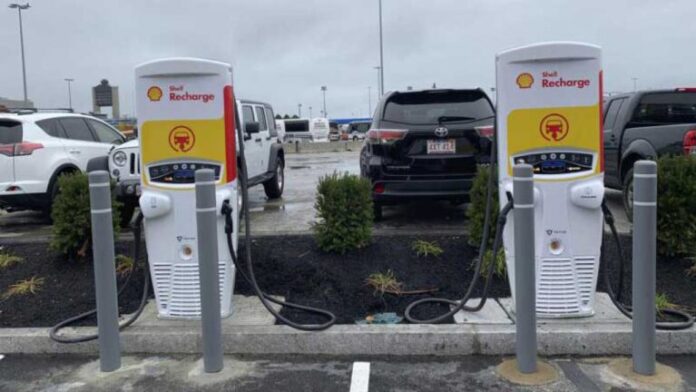Every few months, there seems to be the rumour in the air: Tesla is coming to Pakistan. In the latest iteration of the rumour, Tesla executives are set to meet Prime Minister Imran Khan soon. After, just on January 5, everyone’s enthusiastic uncle-at-large, and federal minister for science and technology, Fawad Chaudhry tweeted: “Dear @elonmusk, your next destination may be Pak, 68% of world population lives within 3.5 hrs flight radius from Isld,we offer ten years zero tax facility and custom free import for factory setup,no other country may offer,plus we are worlds 3rd biggest freelance software exporters.”
Exactly why, or how, or even who, will drive Tesla on the roads of Karachi (roads of Lahore, maybe), is besides the point. The point is that people know what a Tesla is, which is really shorthand for an electric vehicle. And Chaudhry is not wrong: electric vehicles in Pakistans would be a game changer, and is something the PTI government has been keen on.
The Electric Vehicle Policy was approved in June 2020, and it aims to bring half a million electric motorcycles and rickshaws, along with more than 100,000 electric cars, buses and trucks, into the transportation system over the next five years. The first stage of the policy will focus on motorbikes and rickshaws. Cars will be the last category to be converted (so the Teslas can wait).
Electric vehicles are prized for two reasons: first, they save on fuel costs (by some estimates, up to Rs25,000 a month); and second, they produce l65% less pollutants than regular engines. This is not insignificant in a country which boasts some of the most polluted cities in the world, according to the latest World Air Quality report. All in all, by 2030, the government wants at least 30% of all vehicles to be electric.
So, with this context in mind, one would think that anything that is electric is of significance. For instance, if a large conglomerate like Shell Pakistan, and K-Electric, the electricity provider to the largest city in the country, decided to sign a memorandum of understanding to explore the possibility of three electric charging stations in Karachi. In a notice on their website, the locations selected for installing 50 KWH rapid chargers are; the Shell Defence Filling-Station on Khayaban-e-Bahria, Askari Filling Station at Gulshan Town, and Mardan Filling Station at Gadap Town.
Over the next 3 to 5 years, SPL and KE will explore the opportunity of additional sites and strategically expand the EV charging network. While SPL will engage in the deployment of charging station equipment, site preparation, installation and manage its operations; KE will ensure grid enhancement.
The Pakistan Stock Exchange heard this news, and also thought – this is significant. Which is why it sent a letter to KE on January 12, asking them to explain themselves. In a letter issued to the PSX on January 14, KE responded by saying that K-Electric is an exclusive power distributor in Karachi, and power acquisition by any electric charging station would require an arrangement with KE.
“The arrangement would not result in a paradigm shift in the primary strategy of KE, nor would it tantamount to change in its primary business,” said KE. It further explained that a public announcement of the arrangement was only made to make the people of karachi aware of KE”s commitment towards long term environmental sustainability through reduction in carbon emissions and adoption of green energy.
For this reason, KE said that the above explained arrangement was not price-sensitive, and did not warrant a disclosure under PSX regulations.
Except perhaps the news was price sensitive. That is because on January 12, the price of KE’s went up from Rs4.01 on January 11, to Rs4.50 on January 12 (though it declined to Rs4.06 by January 19).
And again, KE had to issue a notice to PSX on January 14, to say “we are not aware of any matter and or any material information which may have resulted in the movement in price and volume”.
Really, no information? What is going on? Is KE deliberately being dense?
Turns out, not really. If one re-reads the fine print, essentially, it is Shell Pakistan that will be responsible for the charging station equipment, site preparation, installation and operations, while it is KE that will ensure the enhancement of the grid.
According to an analyst, what this means is that KE is not really the one bearing direct costs or direct revenue gains through this. It is Shell Pakistan. While they are starting off with three stations right now, the notice on the PSX should have been that they are starting off to three and plan on increasing as time goes on, according to PSX.
Besides, for KE this is like having a new domestic connection, and perhaps even less so than that, because the number of chargeable vehicles in Karachi are practically non-existent. KE’s only job is to expand its grid.
According to the analyst, it is probably Shell that needs to announce any new information, as they are the ones incurring the costs of the equipment. But that cost may be insignificant, because what might seem ‘material’ for a small company, may not be for a bigger company like Shell. Besides, the revenue is likely to be minimal.










EV Nimh battery is the economical way to store from Solar charging stations for gasoline/petrol. Pakistan has to review entire energy from MNC’s which will invest in solar pumps on the city foot paths. Do not waste time just do it. Don’t wait for better time. This is the best time.